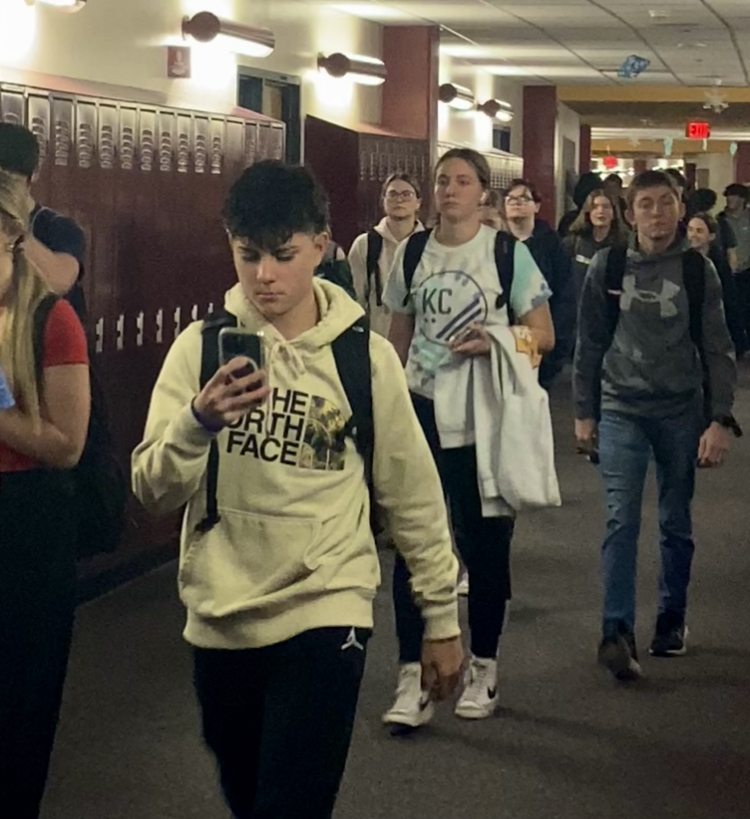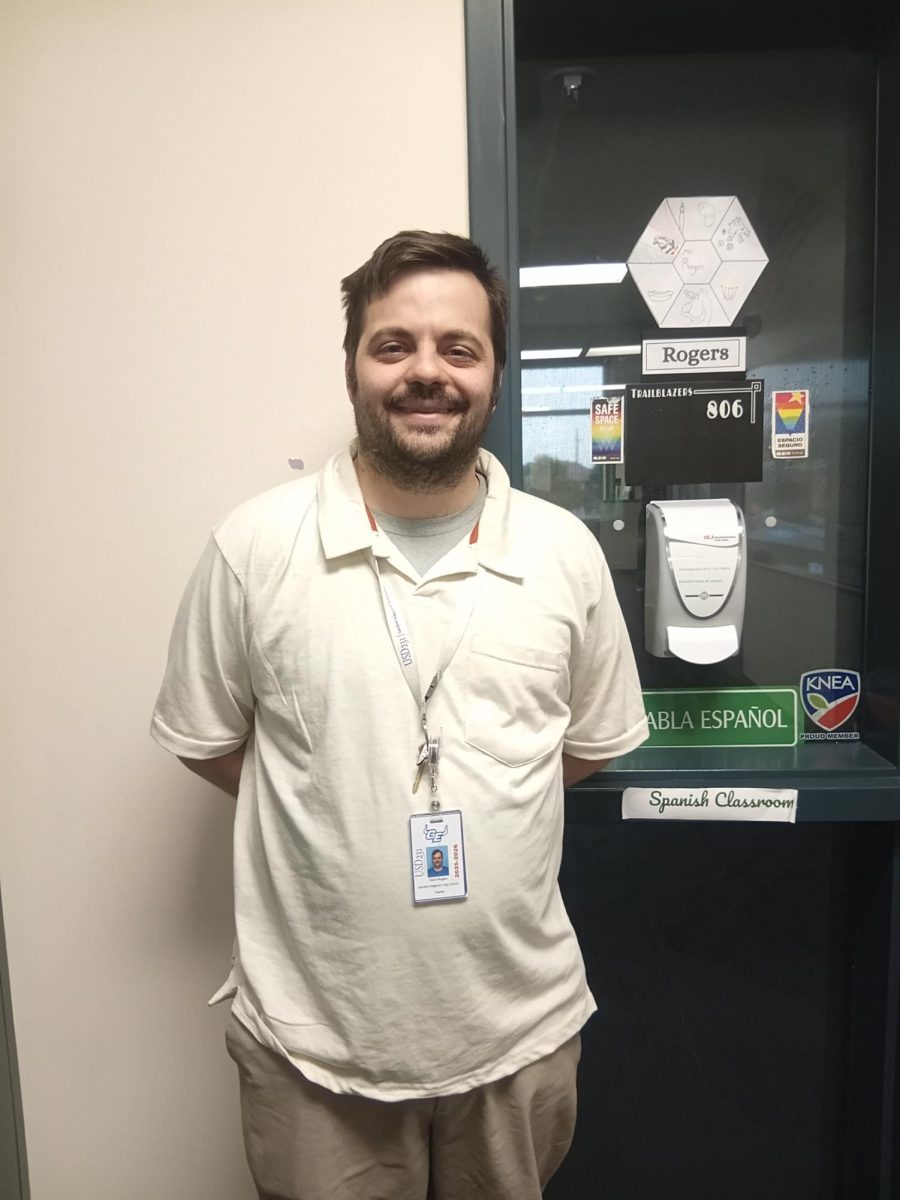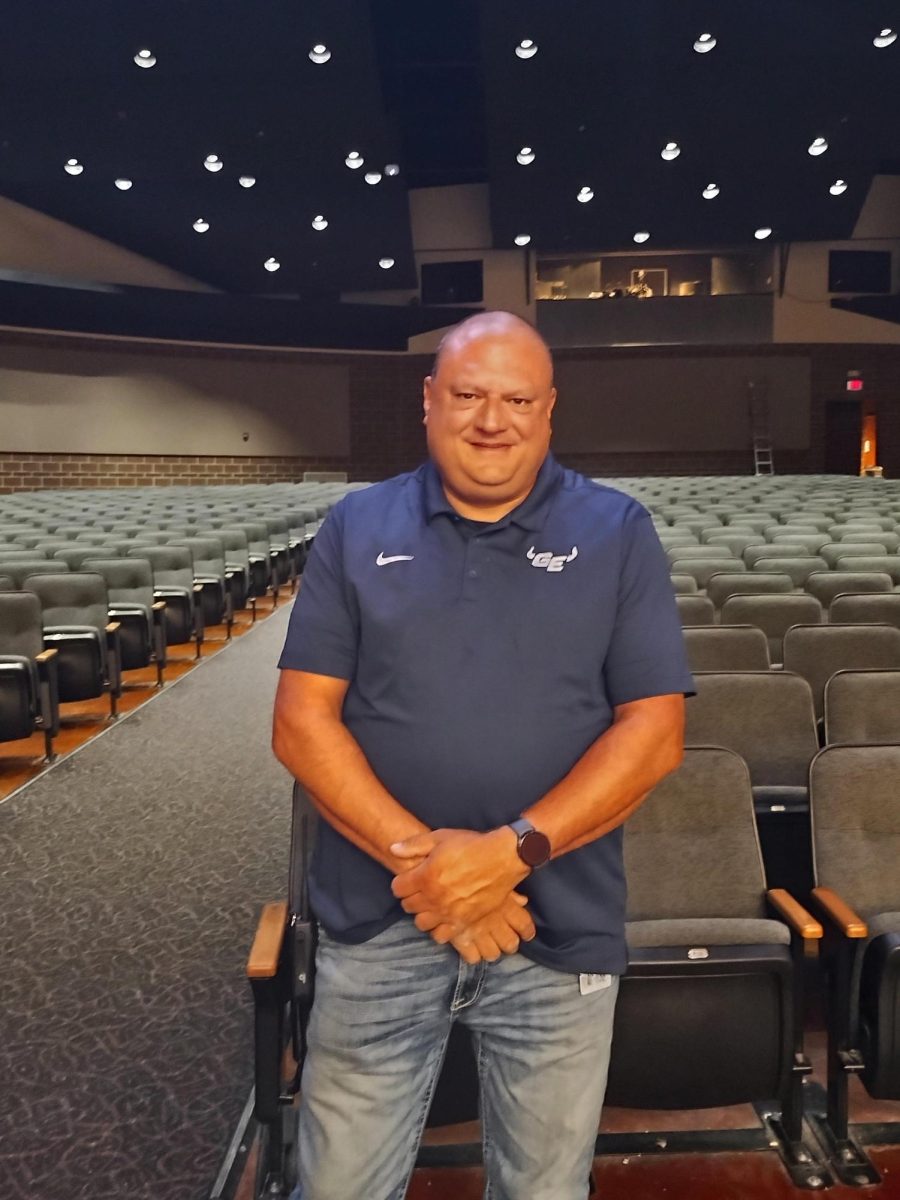The passing period here at GEHS is seven minutes long, but there is talk of it being shortened. Before the Advanced Technical Center, or ATC, was added the passing period was five minutes, but they made it longer so students would be able to leave and return from the separate building. Though students appreciate those extra minutes, people are questioning if they are really needed.
“We’re considering all things. The reality is, students coming back from the ATC can get back to their classes in time within five minutes,” Frank Bell, principal said.
Bell went on to explain that lengthening the passing period was not tested before it was established. Some students make longer trips to get to their classes and might need the full seven minutes. Bell said that for those students an exemption could be made to make sure the student has enough time to get to class.
“[It] wasn’t really piloted, but rather just an assumption made, so what we’ve learned is, there’s a few students that might have to go all the way from let’s say welding to French class and that’s a long trot,” Bell said. “So for those few students, we felt like if we ever go to a five-minute passing period, those kinds of things can be worked out between the welding teacher and the French [teacher], so if that student needed a six-minute passing period, it would be granted.”
Bell believes that five minutes should be enough time for most of the students to get to class.
“The thing is that well over 95% of the students don’t need seven minutes. Five minutes is more than enough time to get from class to class,” Bell said.
Though Bell believes that students would have enough time to get to class with a five-minute passing period, he also believes that having a seven-minute passing period has some positives.
“Well when you have full block schedule and your blocks are 83 minutes long then, let’s talk about giving kids an extra couple of minutes to be with their peers out in the commons or in the hallways, [there] might be something said about that,” Bell said. “If [students are] really all in on their 83 minutes maybe [an] extended break during passing period, might be considered a positive.”
Bell explained that if a change does take place they will weigh both the positives and negatives to come up with the best option.
“If we do change we are going to weigh all those things out. I’ll talk to students and staff, maybe even parents. I’m not impose to six minutes, or just having that discussion,” Bell said.
Bell explained that there are negatives to having a longer passing period
“The cons are lost of instruction time and sometimes mischief, mischief in the bathrooms, mischief in our commons because there is more time,” Bell said.
Bell also believes, however, that there are other ways to stop the problems from occurring other than shortening the passing period.
“I can tell you that sometimes not always, many times actually, when an adult is present typically kids don’t misbehave… our belief is that the more adult supervision the better in unstructured time areas,” Bell said.
Bell explained that shortening the passing period would mean that students would have to move quicker than they do now to get to their classes on time.
“If kids are moving with a purpose, if you go to a lesser [passing] period, a five minute versus a seven minute, you got to move and we reward you with a finals opt-out for getting to class on time where actually it’s not just ‘hey just do this,’ but rather its ‘hey we are going to make this worth your while,’” Bell said.
When making a decision like this Bell seeks out other people’s opinions on it, and whether passing period gets shortened will be no different.
“I hope the students have learned to trust me and the administrative team with decisions like this, we don’t just [say] ‘hey let’s do this’… but rather we get information from students, staff, and parents,” Bell said. “And sometimes I get three different opinions on the same subject from those three [and] somewhere in there, there is a solution we can all live with.”
Bell thinks that the longer passing was a good idea to help the students who needed it, but when making this decision they have to consider all students.
“I think the intent was good when the ATC was built and the school moved from a five-minute to a seven-minute passing period,” Bell said. “I think that was a good thing, but there was an assumption there that they would have to have it for all students. The reality is it only needs to be done for [a] very few number of students of our almost 1800, so you don’t do it just for that reason. We got to consider everybody and what’s best for everybody.”
















